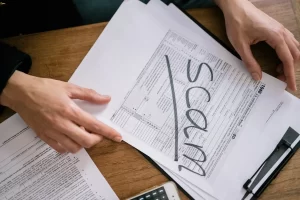- Debts and Credit
Is It Worth Taking Out a Loan to Pay Off Debts?

For many people struggling with debt, the idea of taking out a new loan to pay off existing obligations sounds like a practical solution. Known as debt consolidation, this strategy involves using one loan—often with more favorable terms—to pay off multiple debts. But is it truly worth it?
In this comprehensive guide, we’ll explore when using a loan to pay off debt makes financial sense, the potential risks, and how to do it effectively. Whether you’re dealing with credit card balances, medical bills, or personal loans, understanding the pros and cons of this approach can help you make a more informed financial decision.
What Does It Mean to Take Out a Loan to Pay Off Debt?
This process is commonly referred to as debt consolidation. It involves combining several debts into a single loan, usually one with a lower interest rate or better terms. The most common types of debt people consolidate include:
- Credit card debt
- Personal loans
- Medical bills
- Store card balances
- Payday loans
By using one loan to pay off several smaller ones, you may simplify your financial life and possibly save money in the long run.
When Is It Worth It?
Let’s explore scenarios where taking out a loan to pay off existing debt can be a smart financial move.
1. You Qualify for a Lower Interest Rate
This is the most common reason for debt consolidation. If your new loan has a significantly lower Annual Percentage Rate (APR) than your current debts—especially credit cards with high interest—this could save you a substantial amount in interest over time.
Example:
Imagine you owe $8,000 spread across three credit cards with an average APR of 22%. If you consolidate with a personal loan offering an APR of 10%, you could cut your interest payments in half and possibly pay off the debt faster.
2. You Want a Fixed Repayment Plan
Many debts—especially credit cards—come with variable interest rates and flexible minimum payments. This can make budgeting difficult. A personal loan typically has a fixed interest rate and a set repayment schedule, making it easier to plan your finances and track progress.
3. You’re Overwhelmed by Multiple Payments
Juggling multiple due dates, minimum payments, and interest rates can be stressful. A debt consolidation loan streamlines everything into one monthly payment, helping you stay organized and avoid missed payments that can hurt your credit score.
4. You Have Good Credit (or It Has Improved)
If your credit score has improved since you first took out your debts, you may now qualify for better lending terms. Lenders see you as less risky, which could unlock lower rates and higher loan limits—making consolidation more attractive.
5. You’re Committed to a Financial Turnaround
Taking out a loan to pay off debt should go hand-in-hand with a commitment to not accumulate new debt. If you’ve developed a budget, improved your spending habits, and want a clean slate, consolidation can be a smart reset.
Potential Benefits of Using a Loan to Pay Off Debt
Here’s a deeper look at what you stand to gain:
✅ Lower Interest Costs
Reducing the amount of interest you pay each month means more of your payment goes toward the principal, helping you pay off the total debt faster.
✅ Predictable Monthly Payments
With fixed terms, you’ll know exactly how much you owe and when you’ll be debt-free—unlike credit cards, which can drag on indefinitely if you only make minimum payments.
✅ Credit Score Improvement (Over Time)
If managed correctly, consolidation can improve your credit by:
- Reducing your credit utilization ratio
- Helping you avoid missed payments
- Demonstrating responsible credit management
✅ Stress Reduction
Debt can cause significant emotional strain. Consolidation gives you a clearer plan and a psychological boost from taking action.
When Is It Not Worth It?
While debt consolidation loans can be useful, they are not for everyone. Here are situations where taking a loan may cause more harm than good.
1. You’re Trading Unsecured Debt for Secured Debt
Be cautious about using a home equity loan or line of credit to pay off credit cards. While the interest rate may be lower, you’re putting your home at risk. If you default, you could lose your house.
2. You’re Not Addressing the Root Cause
If your debt is the result of overspending or lack of budgeting, consolidating without changing your habits can lead to a cycle of debt—now with a larger loan on top.
3. The Loan Terms Aren’t Favorable
Sometimes, lenders offer consolidation loans with high fees, long repayment periods, or only slightly lower interest rates. These may result in paying more in total interest, even with lower monthly payments.
4. You Have Poor Credit and Can’t Qualify for a Good Rate
If your credit score is low, the only loans you may qualify for might come with sky-high interest rates, defeating the purpose of consolidation.
5. You Plan to Use the Paid-Off Credit Again
If you pay off your credit cards and then start using them again without paying them off in full each month, you’ll end up doubling your debt instead of solving the problem.
Types of Loans Used for Debt Consolidation
Not all debt consolidation loans are the same. Here are the most common options:
1. Personal Loans
Unsecured loans that can be used for almost any purpose, including paying off debt. These usually have fixed interest rates and set repayment terms.
- Pros: No collateral needed, fixed payments, predictable terms
- Cons: May require good credit, interest rates can still be high for some
2. Home Equity Loans or HELOCs
Allow you to borrow against the equity in your home.
- Pros: Lower interest rates
- Cons: Your home is at risk if you default
3. 0% Balance Transfer Credit Cards
Offer a promotional period (often 6–18 months) where no interest is charged on transferred balances.
- Pros: Potential to pay off debt interest-free
- Cons: May charge transfer fees, high APR after promo ends
4. Debt Management Programs (DMPs)
Not a loan, but worth mentioning. A credit counseling agency negotiates with your creditors to reduce interest rates and consolidate payments.
- Pros: Lower interest without a new loan
- Cons: May impact credit score, some fees involved
Questions to Ask Before Taking a Loan to Pay Off Debt
Before moving forward, ask yourself:
- What is the total cost of the new loan versus my current debts?
- Can I afford the new monthly payment consistently?
- Am I likely to fall back into debt if I consolidate?
- What fees are involved (origination, early repayment, etc.)?
- Will the new loan actually save me money?
Use online debt calculators or speak with a financial advisor to analyze these numbers thoroughly.
How to Consolidate Debt the Right Way
If you decide a loan is the right path, here’s how to do it responsibly:
Step 1: Check Your Credit Report
Ensure it’s accurate and up to date. Dispute any errors that might affect your eligibility or interest rates.
Step 2: Shop Around
Compare offers from multiple lenders, including banks, credit unions, and online platforms. Look beyond just the interest rate—consider fees, repayment terms, and customer reviews.
Step 3: Read the Fine Print
Understand all loan terms before signing. Look for:
- APR
- Repayment schedule
- Late payment penalties
- Prepayment fees
- Total interest over time
Step 4: Pay Off Your Debts Immediately
Once the loan is disbursed, use the funds to immediately pay off the balances you intended to consolidate.
Step 5: Don’t Close Paid-Off Accounts (Unless Necessary)
Keeping old accounts open can improve your credit utilization ratio and help your credit score, but don’t use them to take on new debt.
Alternatives to Taking Out a Loan
If a new loan isn’t ideal for you, consider these other strategies:
- Debt Snowball or Avalanche methods
- Negotiating directly with creditors
- Using windfalls (bonuses, tax returns) to pay down debt
- Increasing your income temporarily through side jobs
Final Thoughts: Should You Do It?
So, is it worth taking out a loan to pay off debts?
It can be—if it results in lower interest, simpler payments, and supports your financial goals. But it also requires discipline, research, and commitment. Consolidation is a tool—not a magic fix. It works best when paired with strong budgeting habits and a clear plan to avoid future debt.
If you’re considering this route, take the time to understand all the implications. Get advice if needed. The right decision now can save you thousands in the future—and bring you one step closer to financial freedom.






